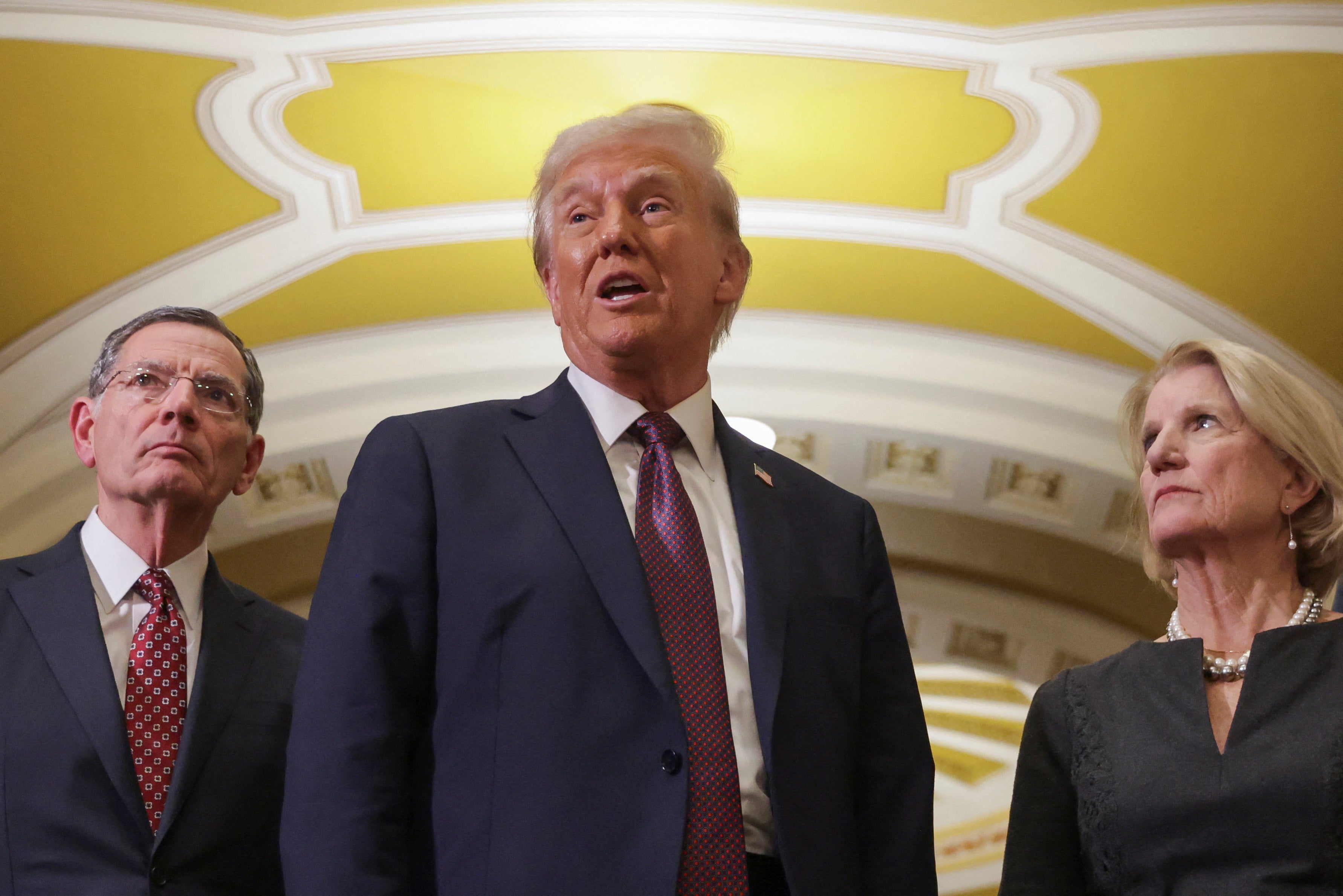Trump announces puzzling new ‘External Revenue Service’ to collect tariffs, other foreign income
The man who wants to shrink the government will be adding a new agency performing tasks already covered by other agencies
President-elect Donald Trump has announced that he is creating a new “External Revenue Service” to collect tariffs and other foreign income.
Trump announced the new agency in a Truth Social post Tuesday morning, contending that the U.S. has “relied on taxing our Great People using the Internal Revenue Service (IRS)” for “far too long.”
“I am today announcing that I will create the EXTERNAL REVENUE SERVICE to collect our Tariffs, Duties, and all Revenue that come from Foreign sources,” the president-elect wrote. “We will begin charging those that make money off of us with Trade, and they will start paying, FINALLY, their fair share.”
Trump said the service will begin operations on Monday, when he will officially take office after an inauguration ceremony at the U.S. Capitol.
Agencies are established by Congress.

It’s not clear how the External Revenue Service would operate. U.S. Customs and Border Protection currently handles tariffs and collects the funds, along with other fees associated with imports. Those funds are then deposited into the U.S. General Fund. Trump, who has vowed to shrink the government, would be adding an agency to do tasks already performed by other agencies.
Right-wing podcaster Steve Bannon, a one-time White House strategist for Trump, pitched the idea early Tuesday at a conference run by Politico, insisting that the new agency would need to focus on much more than tariffs.
“You wouldn’t just look at tariffs, you would look at everything about how you can charge fees, essentially, whether that is on investment, access to this country," Bannon said.
"America is behind the golden door. This market is the most robust, lucrative market in the world, and we shouldn’t just let people have access it — we shouldn’t let foreigners have access to this market and to the American people and to the American citizens for free,” he added. His description of the American market as the most “robust” in the world was a dramatic contrast to Trump’s frequent portrayal of the economy as teetering on failure.
This announcement comes after Trump threatened to level 25 percent tariffs against Canada and Mexico, while China could face tariffs of an additional 10 percent.
Several economic experts have warned these tariffs will only hurt consumers, who foot the bill for the higher prices, as opposed to the foreign companies that export the goods. The higher prices, however, will make foreign products less competitive.
These tariffs “could in theory lead to some pretty significant consequences for three groups of people: US consumers, US refiners, and Canadian producers,” Daan Struyven, a researcher for Goldman Sachs, told Bloomberg.
George Washington University economics professor Tara Sinclair previously made a similar claim to The Independent, explaining that consumers will suffer.
“Tariffs would likely be a higher tax on consumers – U.S. consumers,” Sinclair said. “This idea that those tariffs would somehow be magically paid by the foreign companies and wouldn’t be passed through American consumers does not stand out empirically in the data.”
Join our commenting forum
Join thought-provoking conversations, follow other Independent readers and see their replies
Comments
Bookmark popover
Removed from bookmarks